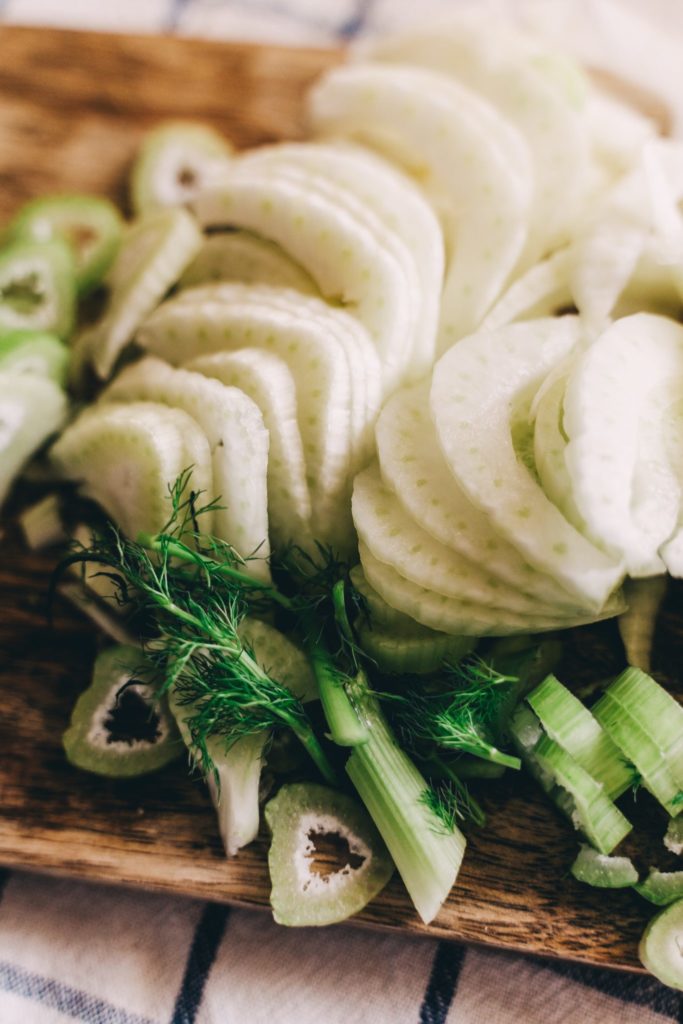Fresh, aniseed-tasting fennel is a delicious and nutritious way to add flavour to your cooking. Fennel has long been touted for the range of health benefits and properties it offers, including easing flatulence to helping produce milk in breastfeeding women!
Therapeutic uses of fennel include:
- Relieving gastric upset, including flatulence, wind, burping and hiccups.
- May ease colic and intestinal pain.
- Mimics the female hormone oestrogen, so it may encourage the production of breast milk for lactating mothers and can also stimulate menstruation. It’s also thought to help improve menopausal symptoms.
- Can help clear coughs.
Important note: Avoid eating fennel seeds during pregnancy as they may stimulate contractions in your uterus.
Choosing fennel
Florence fennel is the most common variety of fennel available at grocery stores. Look for plump stems and healthy, green fronds. You can also buy fennel seeds and tea from health food stores.
Storing fennel
Store seeds and tea in airtight containers in a cool, dark place. When storing fresh fennel, lightly wrap the stems in plastic wrap or a plastic bag and store in the fridge. Use within a few days for freshness.
Using fennel
Shane Dodd, from Fresh Finesse, has these tips for using fennel: “The crisp white bulb at the base of the familiar feathery leaves has a distinct aniseed taste and is frequently used in Mediterranean cooking. Slice and mix into salads to add a lovely fresh accent, or gently braise with some extra virgin olive oil, garlic and black pepper. Don’t forget to make use of the feathery tops, they pair especially well with seafood.”
Nutritional information
Per 100 g of raw fennel:
| Calories | 18 cals |
| Kilojoules | 78 kj |
| Total fats | 0 g |
| Carbohydrates | 3.5 g |
| Cholesterol | 0 mg |
| Protein | 1 g |
| Fibre | 3 g |
| Potassium | 280 mg |
| Calcium | 20 mg |

